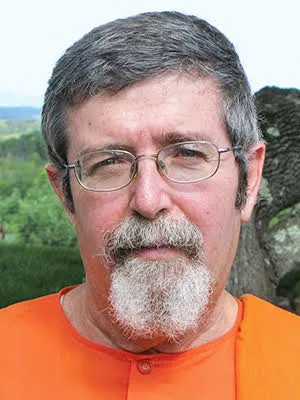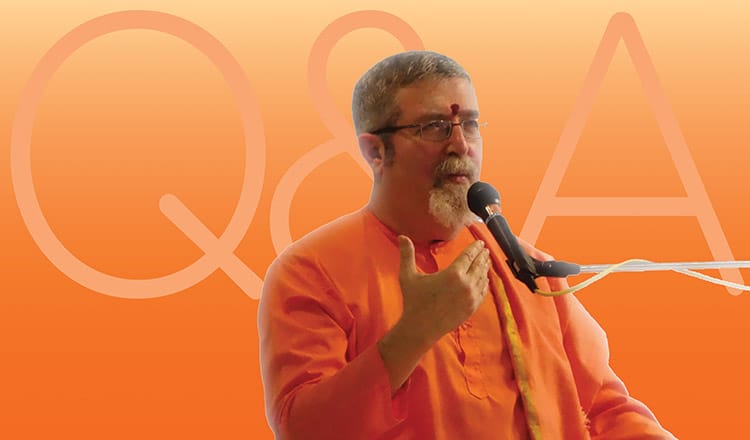Sivananda Bahamas Blog
Expand Your Horizons …
Our Blog
Dispassion Does Not Mean Indifference
Question: If one successfully attains vairagya, or dispassion, why would one do anything beyond one's immediate responsibilities and duties? For example, why did Swami Vishnudevananda feel such a strong need to promote world peace, if he had attained vairagya?
Answer: In the yogic scriptures, vairagya, or dispassion, is described as acting without desire for the fruits of the action. Let's say, for example, that you are feeding hungry people, that you are feeding a million hungry people a day. Someone might ask, why do you do this? What do you get out of it? When this question came up during a talk yesterday, one person spoke about a smiling child. She said that seeing a smile on the face of a distressed child is a great reward for helping.
But we have to ask the question, "Did you help the child for the smile?" Is that really the reason you helped? I don't think the person helping the child thought, "I'm helping the child so I can get a smile." Let's assume you helped the child, but you didn't see the smile, or that you helped the child, but didn't see any direct results at all. Now let's suppose someone again asks, why do you do what you do? Your answer will be, I do what I do because I care for the child, because I love the child. Then the person might ask, but what do you want for yourself? The answer is, if you really love, if you really care, ultimately you don't want anything for yourself. All you want is for the other, not for yourself.
Many of our desires relate to the question, "What can I get for myself?" We want happiness or knowledge or power or name and fame. "I have to get something for myself. If I get something for myself, I'll be happy." But there is another way to look at it, like this: "I do a lot of good in this world. I act. But whatever I do, it's never for myself." If whatever I do is never for myself, at that very moment I am free. That freedom is called vairagya, or detachment. I am free of desire that has as its motive an egotistic reason. I am free from selfish desires, and that is vairagya. Vairagya means that I act, but not because of selfish desires. I only act out of love, out of care. I don't want anything for myself. Nothing. Not even a thank you. The joy is in serving, in loving.
When we study the Narada Bhakti Sutras, we learn in the very beginning that bhakti, or devotion, is its own fruit. It says, "'Bhakti is its own fruit' thus opines Brahma Kumara, Narada, the son of Brahma." In other words, if you have love, if you care for others, what more do you want? What reward do you desire? Really, vairagya is nothing but love. Mother Theresa was asked, "What is service?" She answered, "Service is love in action." If love is there, all of your desires are fulfilled, immediately. Keeping this in mind, ask yourself which you prefer, love, or money?
Audience mumbles
Yes, because money cannot buy love. This is the point. If you have love, you have everything. Or you can have all the money in the world and die a beggar. When a person dies, do you think he thinks, "Oh, it was such a wonderful life. I had so much money"? Imagine instead that with your last breath, you think, "It was such a wonderful life, there was so much love." Let's say that at the moment of your death, you see the faces of all the people you helped. What more reward do you want? Vairagya means that you don't do it for any reward, because the service itself is its own reward. Love itself is its own reward.
In response to the question, you can see that dispassion or non-attachment is not indifference. It is precisely because someone has vairagya that all of that person's life will be a sacrifice for others, nothing but giving and loving in an embrace of all of humanity.

Swami Swaroopananda is a senior disciple of Swami Vishnudevananda. A practicing yogi from a very young age, Swami Swaroopananda has dedicated his life to the practice and teaching of yoga. He taught in Yoga Teacher Training Courses around the world and is currently teaching advanced yoga philosophy courses and lectures internationally. He is Director of the Sivananda Ashram Yoga Retreat and acharya (spiritual director) for the Sivananda centers and ashrams in the Bahamas and the Middle East. He is a member of the Board of Directors of the International Sivananda Yoga Vedanta Centres.
Upcoming Courses
In honor of the Sivananda lineage and Swami Swaroopananda's birthday, we invite all guests, friends, and residents of the ashram to come together for a celebration.
During this special time of year we invite you to join us in celebrating wisdom, love, compassion, and the transcendence of artificial barriers.








